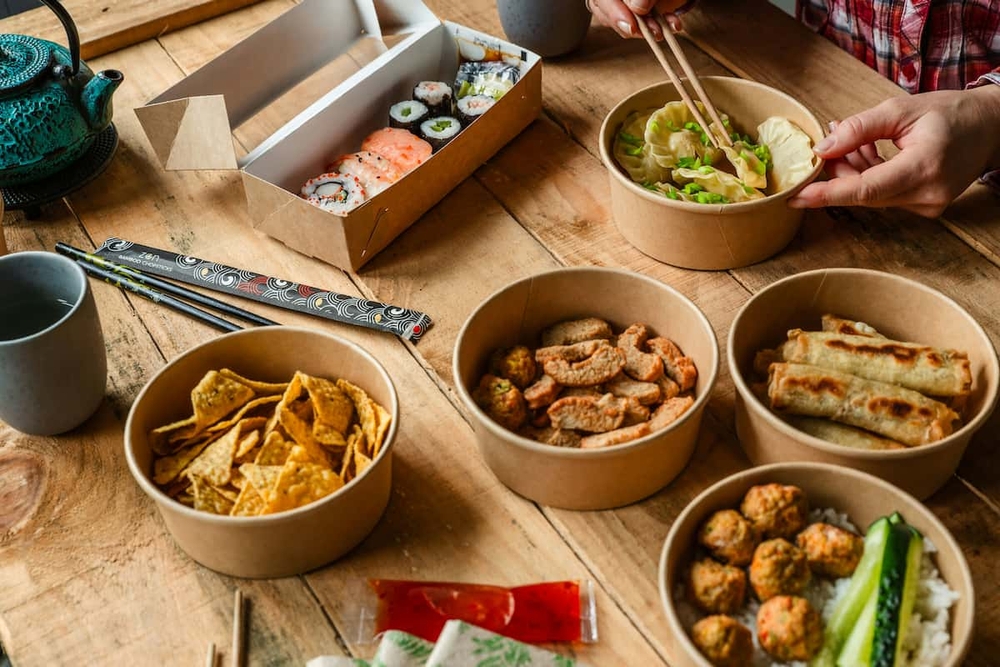Scaling a brand in an industry as competitive as food is not a simple pathway; a little planning and execution are required. Many businesses are at a crossroads where they have to choose between scaling up and maintaining a high level of quality. Similarly, co-packing services provide a more scalable option that helps food brands expand without sacrificing quality or consistency. In this article, we will find out how these services help scale and take the brand to new heights.
Understanding Co-Packing
Co-packing services (or contract packing) are the outsourcing of product production or packaging. This allows businesses to focus on important aspects such as marketing or product development while always having confidence that the manufacturing and packaging components are well managed.
Benefits of Co-Packing
There are many benefits to using co-packing services. One of the most significant advantages is cost efficiency. Outsourcing production enables businesses to avoid investing in costly tools and spaces. Lower overhead costs can quickly free up space in other business areas that need it.
You benefit from their know-how, which is another point in favor. These knowledge-based organizations are well-versed in the practice of production processes. They guarantee quality output that meets industry standards and customer-related requirements. This minimizes the chance of mistakes, which, as we all know, can be expensive and tarnish a brand’s reputation.
Scalable and Flexible
Co-packing also provides a flexible option for brands, as production volumes can be altered based on demand. This ability is crucial for seasonal products or marketing campaigns that trigger spikes in sales. This means brands can scale production up or down without the headache of a big production space.
Scalability is yet another consideration to take into account. Co-packers can also ramp up production when a brand scales. Scalability helps to transition easily when there is growth, allowing continuous development without bottlenecks and delayed products reaching the market.
Core Competences
When food brands partner with a third-party processor, they can focus on their core competencies, like branding, marketing, or product development. This emphasis can develop superior customer interaction and enhanced market visibility. This allows businesses to focus more resources on building their brand and expanding their product offerings, knowing production is in good hands.
Access to State-of-the-Art Technology
The most modern technology. Generally, co-packers have invested in cutting-edge technology and equipment. This enables brands to take advantage of the most cutting-edge developments without investing large amounts of capital. Emerging technology makes the product better, more efficient, and more timely while supporting sustainable practices that consumers demand from good brands and responsible businesses.
Quality Control and Compliance
For any food brand, ensuring quality and meeting industry regulations is crucial. Co-packers follow stringent guidelines that are verified through regular checks and audits. They know all about regulatory compliance and can ensure that all the products sold stay compliant to protect them from the fines that these violations generate.
Entering New Markets
It’s not easy for any brand to grow into new markets. This is where co-packing services come into play, easing the burden of infrastructure, skills, and other resources needed to scale production. Co-packers can guide brands on the nitty-gritty aspects of entering various regions, making market penetration more straightforward and sustainable with their networks and experience.
Creating Relationships
Co-packing is not just a business deal; it is a partnership. In short, a productive relationship with a co-packer will pay dividends down the road in the form of higher workloads and more innovation. Clear communication and collaborative ideation can lead to better solutions and the creation of new products that adapt to new market trends.
Factors to Keep in Mind When Choosing a Co-Packer
There are various factors to consider in choosing your ideal co-packer. Brands need to look at their capabilities, capacity, and reputation before partnering with anyone. Ensuring the co-packer’s values match the brand vision and goals. Transparent communication is also an important pillar of a successful partnership.
Conclusion
When done right, co-packing services can provide a true path to scale for food brands. These outsourcing veterans help brands save money and streamline their quality, allowing them to scale with growth and innovation. The partnership will drive bigger market presence, revenue, and long-term growth through this strategic partnership. For businesses looking to grow, the opportunity to utilize co-packing helps these goals and curtails resource strain. Food brands can take solace knowing that the right co-packer can alleviate potential growing pains on the way to the next level.
